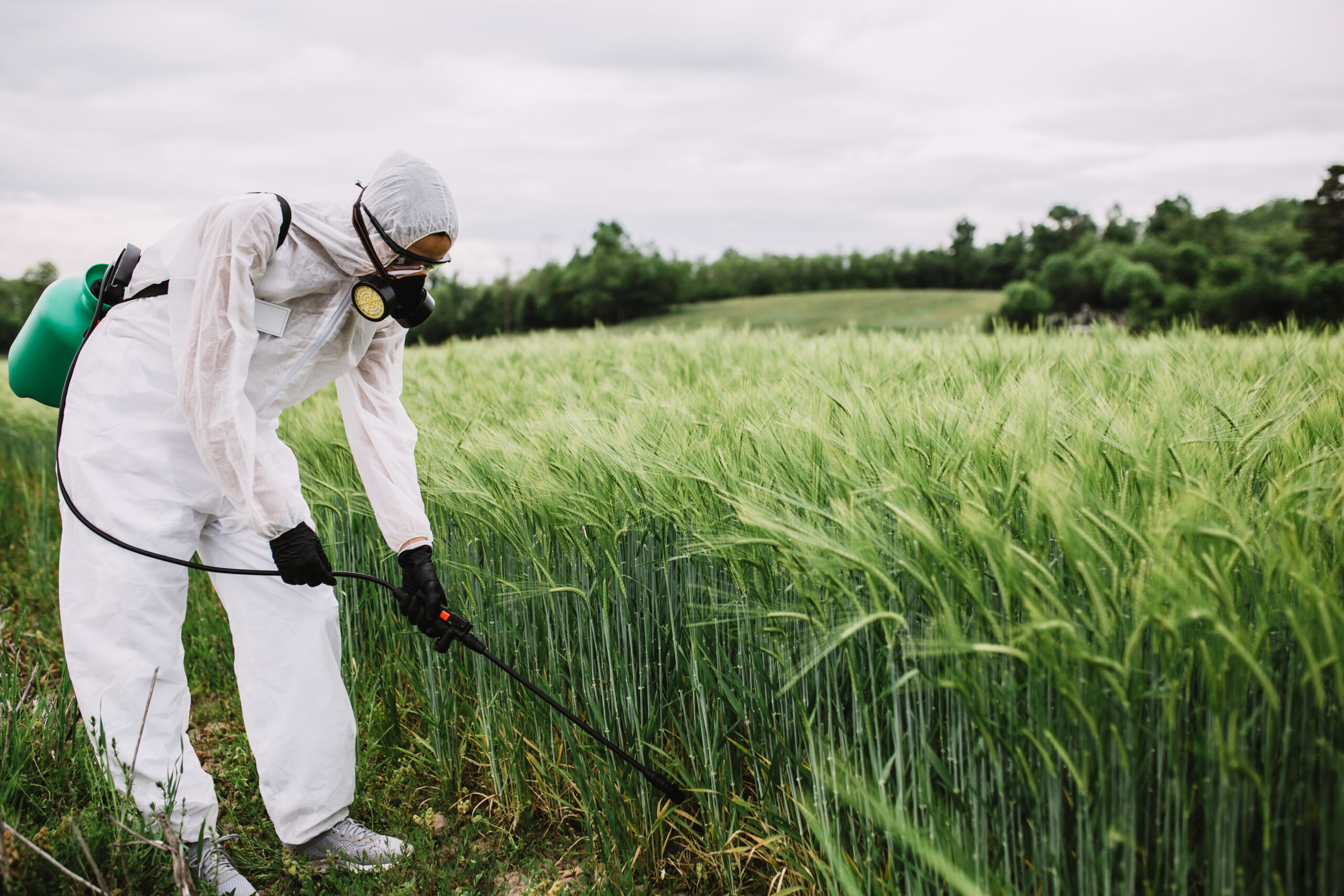Bayer Pharmaceuticals, the company that acquired Roundup when it bought Monsanto, announced last month it will stop selling its weed killer to U.S. consumers in 2023.
It sounds like progress, but it’s nothing more than a public relations cop-out.
 |
|
Almost 280 million pounds of Roundup are sprayed in the U.S. each year. |
That’s because consumer use of the weed killer only accounts for 2% of U.S. glyphosate sales.
So, 98% of spraying will continue on neighborhood parks, ballfields, playgrounds — and of course, Big Agra’s industrial farms.
And the fruits and veggies sold in stores will continue to be contaminated with this hormone-disrupting, microbiome-killing, cancer-inducing chemical.
Bayer is facing $11 billion in lawsuits from victims who have gotten sick after using their product.
Diseases linked to Roundup include: Non-Hodgkin lymphoma, Parkinson’s disease, Alzheimer’s disease, autism, reproductive medical conditions, fatty liver disease, and endocrine disruption.
The International Agency for Research on Cancer has designated Roundup as a “probable human carcinogen.”1
And several countries are banning it.
But, despite its proven record of making Americans sick, the EPA and FDA just gave Bayer the green light to continue to spread their poison on crops.2
This new ruling means you are on your own when it comes to protecting yourself and your loved ones.
Seven Ways To Protect Yourself From Bayer’s Poison
Over my 30 years of treating patients who have been poisoned by our modern environment, I’ve developed multiple ways you can shield yourself from this toxic chemical.
Today, I’m going to show you how…
- Take immediate action. Ask landscapers, your HOA, and local schools to stop using it. If you live near an agricultural area where fields are regularly sprayed, move if you can… your health is too important not to.
- Assess your threat. You’ll find companies online that will test your blood or urine levels for glyphosate. I also recommend you get your tap water tested… and install a good filtration system if necessary.
- Prioritize organic. Buy organic fruits and vegetables as much as possible. One study showed buying organic led to a big drop in glyphosate levels in the blood in just 6 days.3 If your budget doesn’t allow going 100% organic, remember even limited organic purchases – grapes, strawberries, apples, cherries, peaches, spinach, kale – help to reduce your exposure.
- One more reason to ditch grains. In recent years, Big Agra has started to drench fields with the herbicide to instantly dry crop for harvest. This increases yields — and boosts levels of this dangerous molecule. Affected crops include oatmeal, barley, and wheat. Eliminating cereals, grains, and processed carbs will greatly reduce your exposure.
- Toss out your vegetable oils. I’m talking corn, sunflower, soybean, peanut, safflower, and canola. These are often made from GMO crops that contain high levels of glyphosate. Click here for the healthiest oils to use instead.
- Increase manganese intake. Glyphosate has been linked to “severe depletion of manganese.”4 This mineral is essential for mitochondrial function, brain and nerve health, bone development, blood clotting, and blood-sugar regulation. Food sources include black tea, pineapple, hazelnuts, and mussels. You can also supplement. I recommend 10 mg daily.
- Eat more fermented foods. Boosting your intake of fermented foods helps counteract the havoc wreaked by glyphosate to your gut microbiome. Plus, the bacteria in fermented foods are able to break down and metabolize glyphosate. Healthy examples are sauerkraut, kefir, kimchi, kombucha, and miso soup.
To Your Good Health,

Al Sears, MD, CNS
References:
1. Williams Gary, et al. “A Review of the Carcinogenic Potential of Glyphosate by Four Independent Expert Panels and Comparison to the IARC Assessment.” Critical Reviews in Toxicology, vol. 46, no. sup1, 28 Sept. 2016, pp. 3–20.
2. US EPA. OCSPP. “Glyphosate.” US EPA. EPA.gov website.
3. Roberts, Catherine. “Reduce Your Exposure to Glyphosate by Eating Organic.” Consumer Reports. 11 Aug. 2020, ConsumerReports.org website. accessed 9 Aug. 2021.
4. Seneff, Stephanie, and Anthony Samsel. “Glyphosate, Pathways to Modern Diseases

